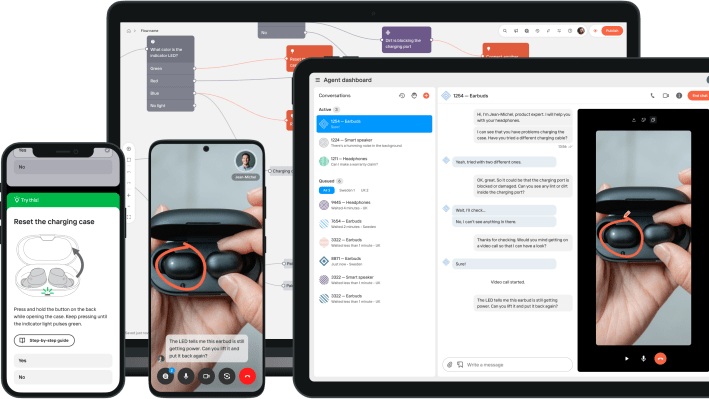Mavenoid, a Swedish company that provides both human- and AI-enabled support and troubleshooting tools for hardware companies, has raised $30 million in a series B round of funding.
Founded out of Stockholm in 2017, Mavenoid works with hardware and consumer electronics companies including HP, Husqvarna, and Jabra, serving to automate technical support and onboarding for customers spanning everything from printers and ovens, to electric scooters and industrial equipment.
Providing technical support for physical products comes with a host of unique problems — problems that can’t be solved by screen-sharing or other solutions borrowed from the software sphere.
Ordinarily, someone having problems with a new dishwasher or coffee maker, for example, would either have to return their product to the store where they bought it, or the company would have to dispatch a field-service agent to physically inspect the item — but Mavenoid adopts a dual AI-guided self-service approach, and agent-assisted live video support, to circumvent these costs.
“The way that you address physical product issues, and the tools you need to be successful, are actually quite different from how you would address software or service issues,” Mavenoid co-founder and CEO Shahan Lilja explained to TechCrunch. “We believe it’s better to have the right tools for the job, rather than trying to use generic solutions for specific problems. Hardware issues are repetitive, difficult and time-consuming to fix. By automating a significant portion of these repetitive — but often complex — support requests, companies can save on costs by reducing overhead and allocating resources elsewhere in the organization.”
Technical support
With live support, Mavenoid gives companies access to interactive video tools, whereby a customer connects directly with a human agent.
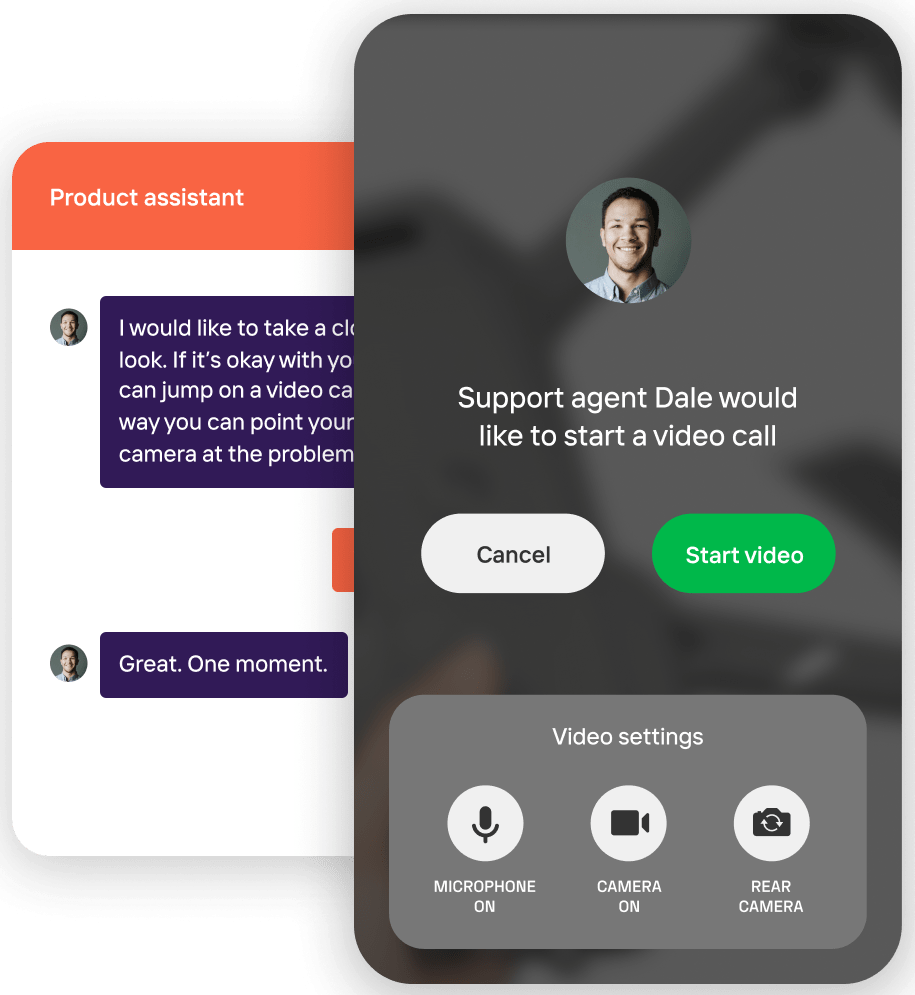
One-click video. Image Credits: Mavenoid
The agent asks the customer to point their smartphone camera at the product, and the agent can zoom in and draw on the screen to illustrate which component needs to be addressed, and share links to guides on how to solve the problem.
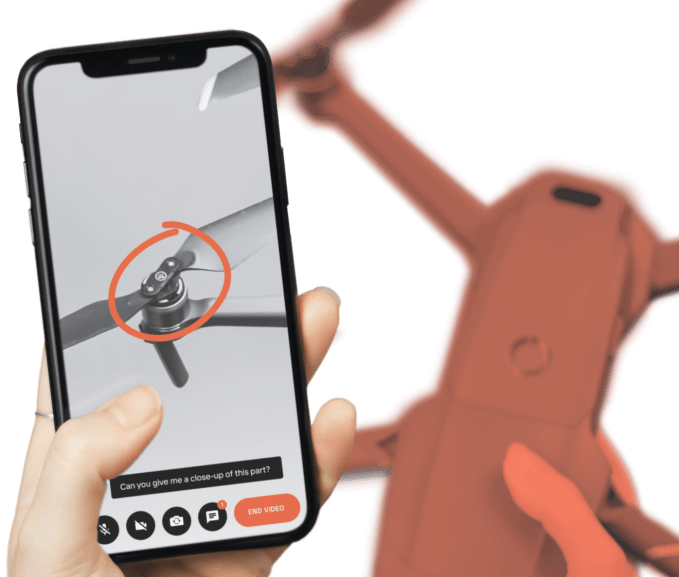
Image Credits: Mavenoid
On the AI-guided self-service side, meanwhile, Mavenoid helps companies compile their technical documentation, FAQs and how-to guides into a format that’s easy to access and query via a chatbot-style interface.
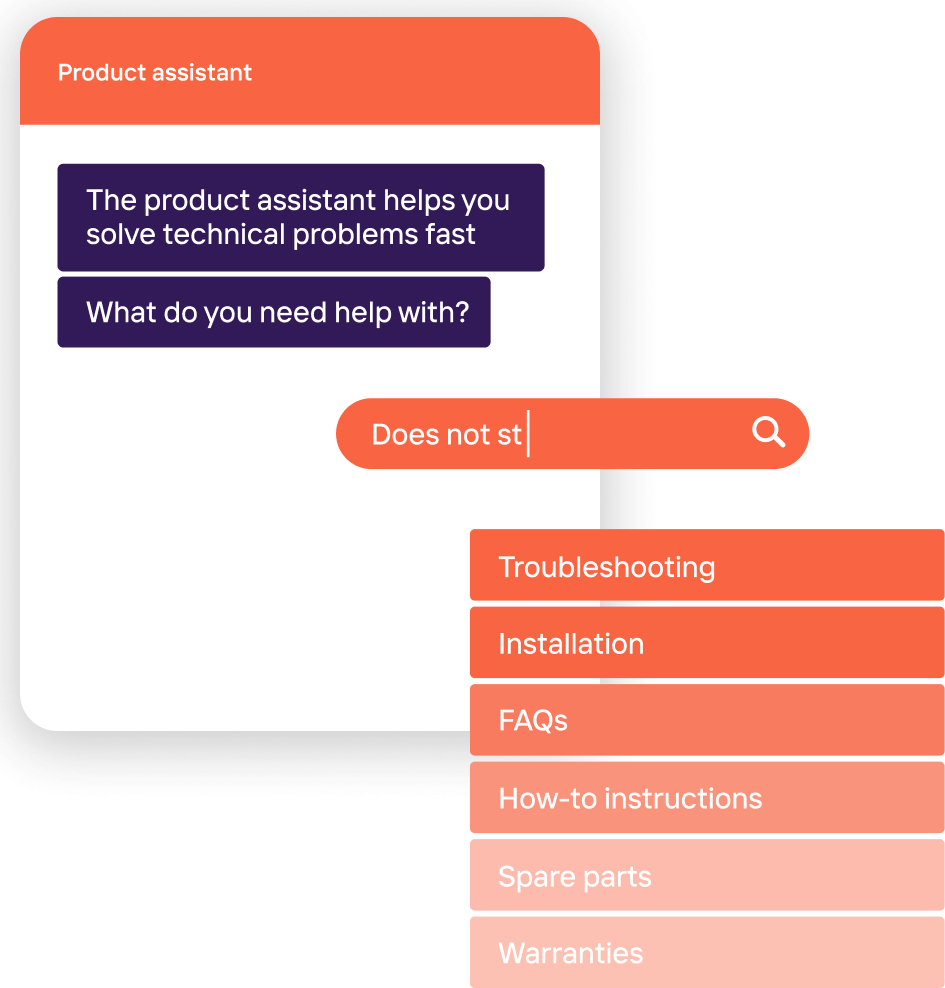
Mavenoid chatbot. Image Credits: Mavenoid
To do this, Mavenoid combines Open AI’s GPT-3 language model and proprietary algorithms to create what it calls “high-quality support models.”
This essentially means that Mavenoid takes care of all the content-scraping (documentation, manuals, FAQs, etc.), and optimizes the knowledge base structure specifically for automated hardware support. This is designed for more complex questions that traditional bot-builders would likely struggle with, and follows a non-linear model that considers the specificities of the problem while using natural language understanding (NLU) to identify the real intent behind a user’s support request.
In short, Mavenoid promises to truly understand a query, rather than simply finding and matching keywords. This increases the chances of finding a resolution to the problem, rather than simply deflecting queries and complaints away from customer support teams.
“Deflection often means that customers don’t get the help they need, and come back more angry than before — ultimately costing companies more in the long run, as they still have to respond to the query, but have hurt customer satisfaction and loyalty,” Lilja said.
It’s also worth noting that at the end of a human-led live support session, agents can suggest feedback that can be incorporated into Mavenoid’s machine learning models to improve the self-service product in the future.
“Over time, Mavenoid’s AI will learn from the implemented suggestions, as it does from all conversations, to improve the automation ability of the self-service assistant,” Lilja added.
In terms of deployment, companies can embed the Mavenoid engine into any website or application by copy and pasting a short piece of code. Then, they can publish links to their product assistants in emails, customer support tickets, social networks, and even QR codes — for example, a company might place a QR code sticker on a product, which directs a customer to a self-service setup guide.
Mavenoid can also integrate with customer relationship management (CRM) software, ticketing systems, ecommerce stores, knowledge bases, and more.
All change
Much has changed at Mavenoid since its $8 million series A round more than two years ago, with a new interface and myriad new features such as AI Retrieval, which enables companies to transform their product documentation into snippets of relevant answers that can be indexed and searched through the Mavenoid self-service product assistant — it’s a little like how Google surfaces answers to specific questions directly in search results.
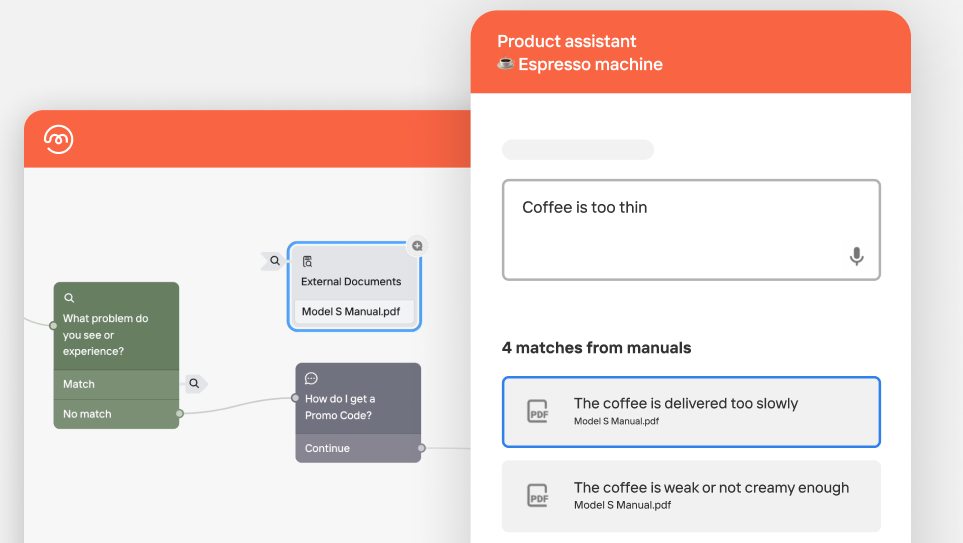
AI Retrieval. Image Credits: Mavenoid
On top of that, Mavenoid has expanded into more than 50 languages and introduced a slew of third-party integrations including with Salesforce, Zendesk, Shopify, Zapier and more.
Mavenoid had previously raised around $10 million, and with another $30 million in the bank, the company said that it plans to double down on its AI and product development, as well as scale its technology globally.
Mavenoid’s Series B round was led by Smedvig Capital, with participation from Creandum, Mosaic, Point Nine Capital, NordicNinja and ABB Technology Ventures.
